Jan Böhmermann does not know what he is talking about. Or: Why you are allowed to earn money with “doing something good” (and why you should do so)
Recently we received a rather angry mail. A young woman had volunteered for a charitable cause via vostel.de. She was satisfied with her work and the outcome of the day. But the situation became problematic when she realized that the initiative for which she was working as a volunteer, financed half a full-time job with her service (selling catering from saved food). However, for the rescue of the food, the production of the catering, customer contact and all other organisational and executive tasks, the association also needs quite a few volunteers. She found it unacceptable that the volunteers invested their time on a voluntary basis, while the work of all those involved in the association finances the (half) living costs of a full-time employee.
The reason for this was one that has been heard more often lately: “Doing something good” shouldn’t be something you can earn money with. We say: That is not true. On the contrary – we are big fans of social entrepreneurship. Social entrepreneurship is the concept of solving social challenges with the help of entrepreneurial means, whereby the social impact is always the primary goal.
Social Entrepreneurship – the solution of social challenges with the help of entrepreneurial means
Several examples in recent times have shown that there is still a great deal of rejection of the combination of money and charitable purposes. For example, Jan Böhmermann (a German TV host) recently ranted on Twitter against the “superwoke start-ups” who are not willing to get involved without a “profit maximisation drive”. By this he meant social businesses that earn money with services and products that bring added value to society. The attack was primarily aimed at the democracy event 12062020olympia, which is co-initiated by the Berlin social business Einhorn. That also the classical economy often draws a clear line between business and “doing good” was shown by the Vox programme “The Lion’s Den” a few months ago. Here, the founders of SirPlus, a supermarket chain for rescued foods, were described by the jury as “over-greedy capitalists” and their social mission as “moralising embellishment” and “hypocrisy”. And even the echo on Twitter made it clear that most people do not (or cannot) connect profitability and “doing good”.
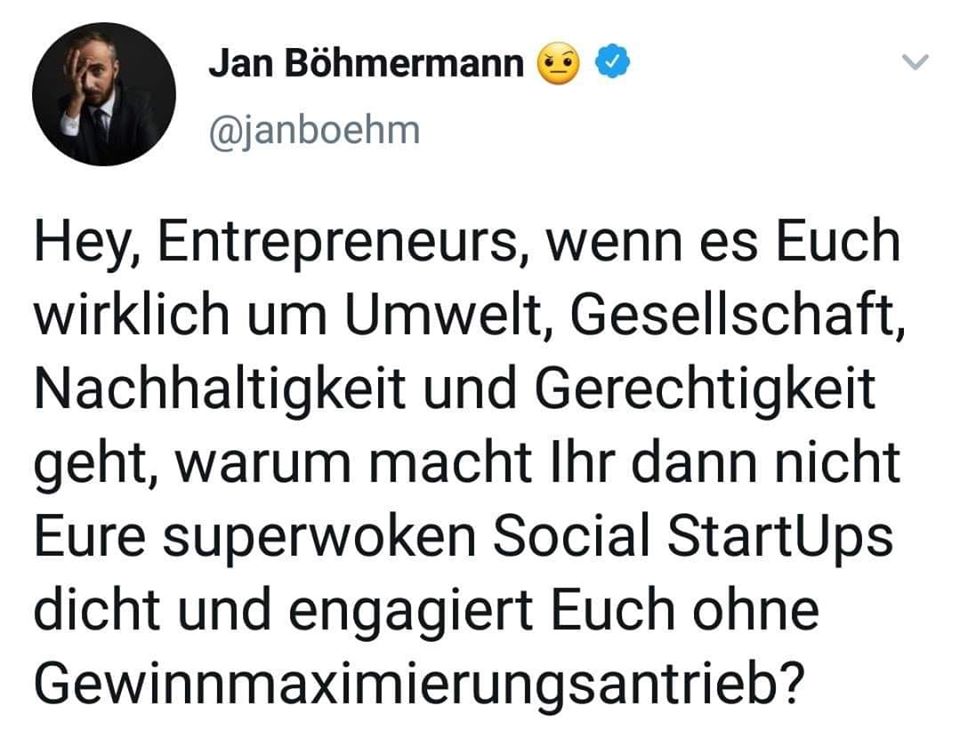
Jan Böhmermann rants against Social Entrepreneurship
Source: Twitter
We can understand the scepticism. Nevertheless, we would like to share with you why we believe that much of the criticism of social entrepreneurship is unjustified and why it is time to combine profit and impact.
It is time to combine profit and impact
It is true that in recent decades, most of the large companies have not necessarily stood for the improvement of social and environmental conditions. On the contrary, these companies are largely responsible for quite a few of the problems we face today, especially pollution and climate change. All the more reason for us to be happy that more and more social enterprises have been founded in recent years and that they have come together in 2017 under the roof of the Social Entrepreneurship Network Germany e.V.
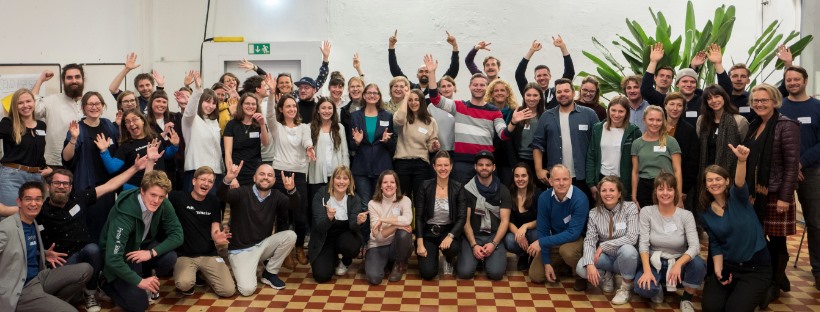
Source: SEND e.V.
We are also one of these social enterprises because our work helps people to become involved in society. The principle is quite simple: social organizations look for support via vostel.de and with an attractive user interface and a smart system, everyone can easily find a suitable volunteer project for themselves. Neither private persons nor non-profit organizations have to pay for this service and that will remain so.
If our work does not finance our lives, we cannot do it
We, as well as many other people who deal with social challenges professionally, can only pursue our work when it also finances our lives. The fact that it pays for a roof over our heads and a meal on the table makes it possible for us to devote ourselves to this issue without being permanently accompanied by existential fears.
When we founded vostel.de, the tax office refused us the non-profit status, because we ourselves are not the good cause but only mediators for the good cause. Therefore we had at first no money and financing ideas, because without the non-profit character in the legal form it is nearly impossible to receive promotion funds. Fortunately, our business model came to us with the request of a company. Consequently, since 2015, we have been financing ourselves by helping companies organize and carry out their corporate volunteering activities for a fee.
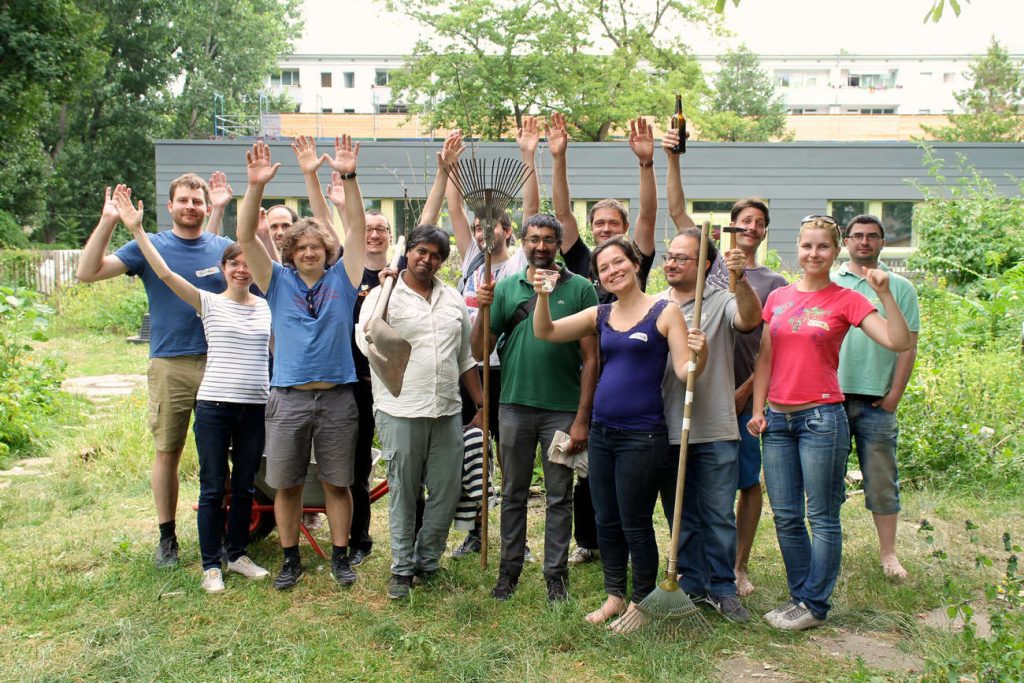
Source: vostel.de
This is the only way we are able to offer our platform to private individuals and non-profit organisations (by the way, also social enterprises that do not have a “small g” in their legal form) free of charge. The fact that we “earn our own money” through a business model instead of resorting to subsidies brings with it a very significant advantage. While many non-profit organisations move from project to project funding and find it difficult to build up a stable core business, our service provides us with structural financing that enables us to work on one and the same issue for a long term. An important factor for sustainable impact!
There does not have to be a business model for social value – but it helps!
Of course, we do not believe that social value can only be achieved with a business model. In Germany in particular, we have a long-established and effective structure of associations, non-profit organizations and charities that have been helping people for decades. Nevertheless, it must be emphasized that money also plays a role in these structures and that a financing mix of grants, donations (and sometimes also income from services or products) is used to finance full-time employees and not all organization members work purely on a voluntary basis. However, this model is much less criticised than the fact that companies make money with social innovations.
Source: Twitter
Not fair, we think. Because in addition to the economic sustainability of many social enterprises, the goal of social enterprises is also special, namely to make themselves redundant. Because social entrepreneurship should not only combat symptoms, but also solve the causes of the problems. It is precisely this thinking that generates many great innovative ideas and business models. As for example these 5 social enterprises show, which we find particularly inspiring:
5 examples of successful social entrepreneurship:
- Social Bee: Helps to integrate refugees into the labour market
- Ecosia: A search engine that plants trees for search inquiries and earns its money mainly from advertisements.
- Soulbottles: Sells drinking bottles, 1€ of each bottle sold goes to WASH projects (water sanitation hygiene)
- Greta & Stark: An app that makes a barrier-free cinema experience with audio description and subtitles possible for everyone. Customers include cinema distributors and film festivals
- Discovering Hands: A company that trains blind and visually impaired women to become medical-tactile examiners who can be used in the early detection of breast cancer and improve it sustainably through their special tactile skills. Private health insurance companies and some statutory health insurance companies cover the costs of the treatment.
All of these companies consciously refrain from the “profit maximisation” that Jan Böhmermann accuses Social Start Ups of in a sweeping manner and instead decide to use entrepreneurial thinking and action to give something back to society. Often they have to struggle with complex business models, difficulties in finding the right legal form and a lack of financing possibilities. And yet they all deliver marketable services and products that they are willing to pay for, just like traditional companies. But at the same time they also solve social challenges.

Source: Ecosia
In the meantime, there are enough successful examples of social enterprises to show us that this is not just a hip trend from Berlin that will disappear in a few years. On the contrary, we hope that it will become the new normality, that companies set a social or ecological focus and solve social challenges instead of creating new ones. In her TedTalk “How to Scale Up Sustainability By Considering It as an Investment!“, Eliza from the company Einhorn opened up the exciting thought experiment of what would happen if the goal of every company was to put social value rather than “shareholder value” first.
We hope that it will become the new norm for companies to set themselves a social or ecological focus
But there is one thing we should not forget in all the discussions about social value – no matter whether it is voluntary, full-time, through social entrepreneurship, welfare or charity, we all work together and want to make our society a little more inclusive, fair, committed and greener. And in our eyes, the best way to do that is with stable financing.
So there are many good arguments for social entrepreneurship, and we are sure that if the critics were to take a close look at the topic, some of them might soon be less opposed to it. And Böhmermann might even notice that his actions and those of social entrepreneurs are not so far apart. Janni also tries to change social problems, but only with cynicism and humour – nevertheless, he probably earns some money with it. Fortunately, because otherwise he would have disappeared from the world of television and media soon, and with him his work for a more humorous and open society.

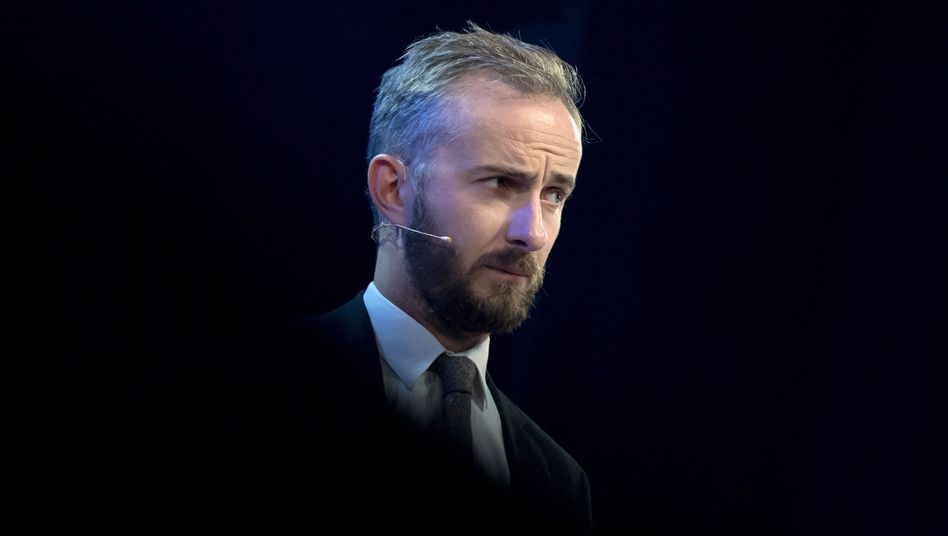




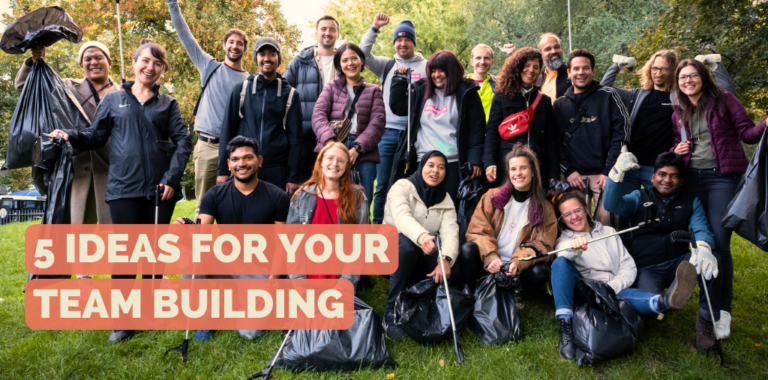
No Comments yet!